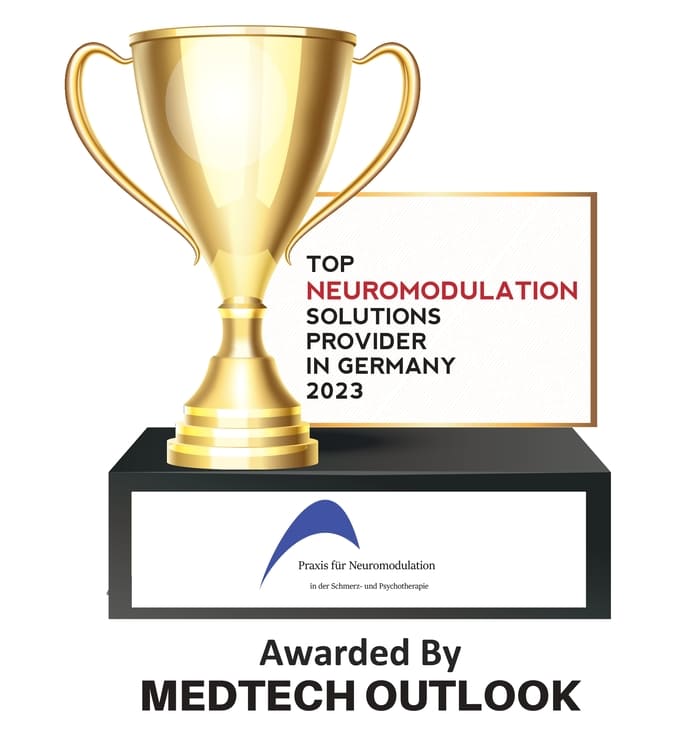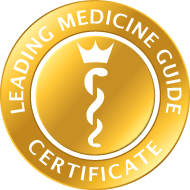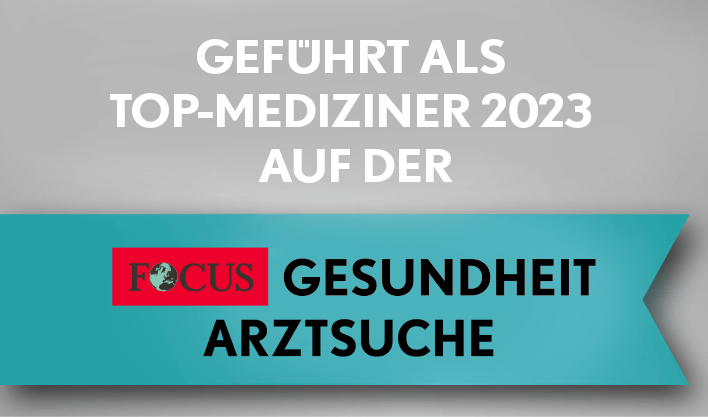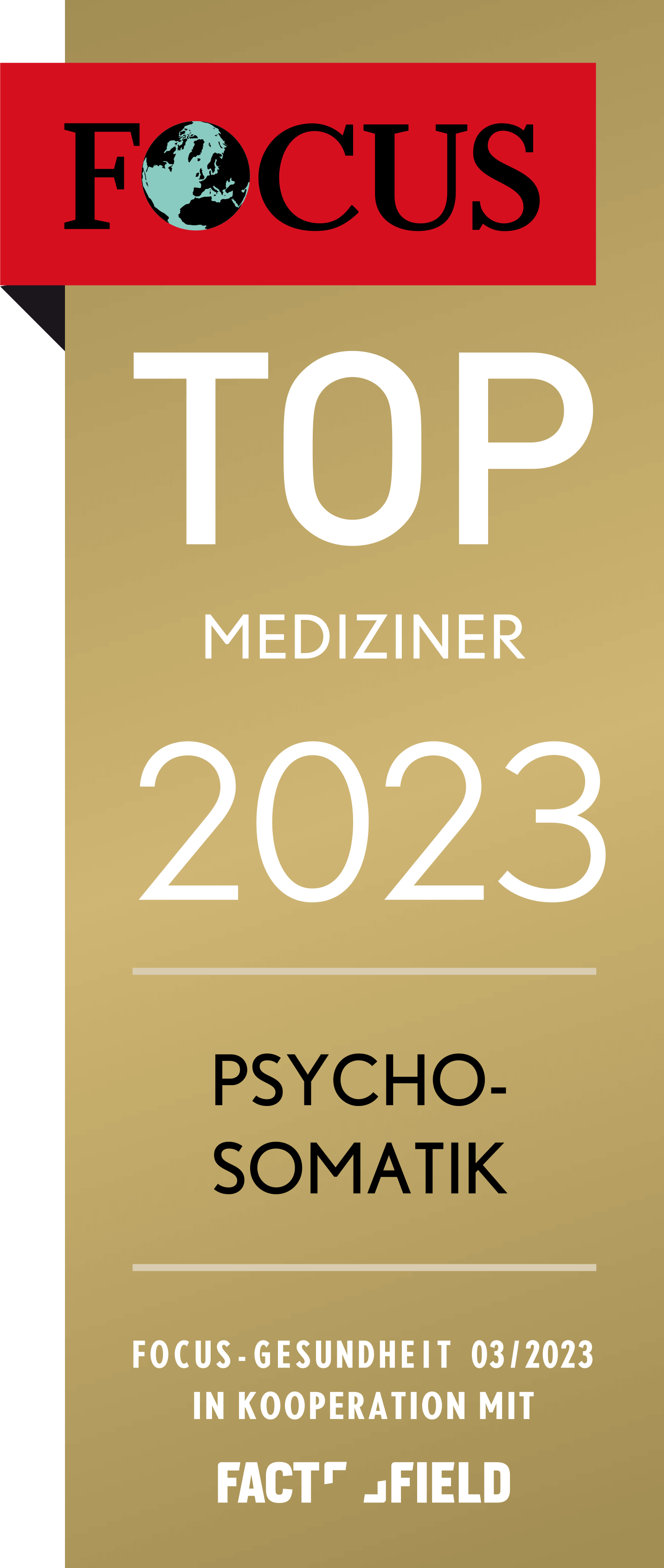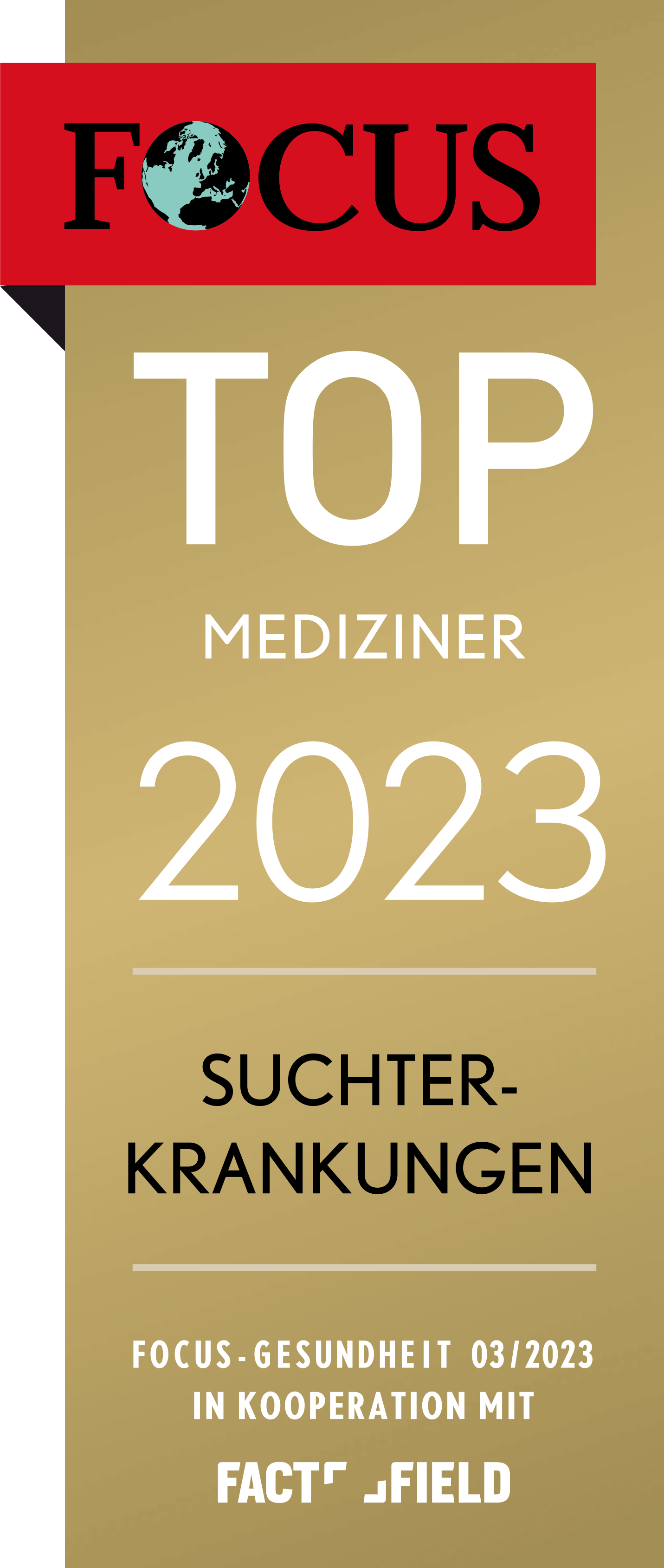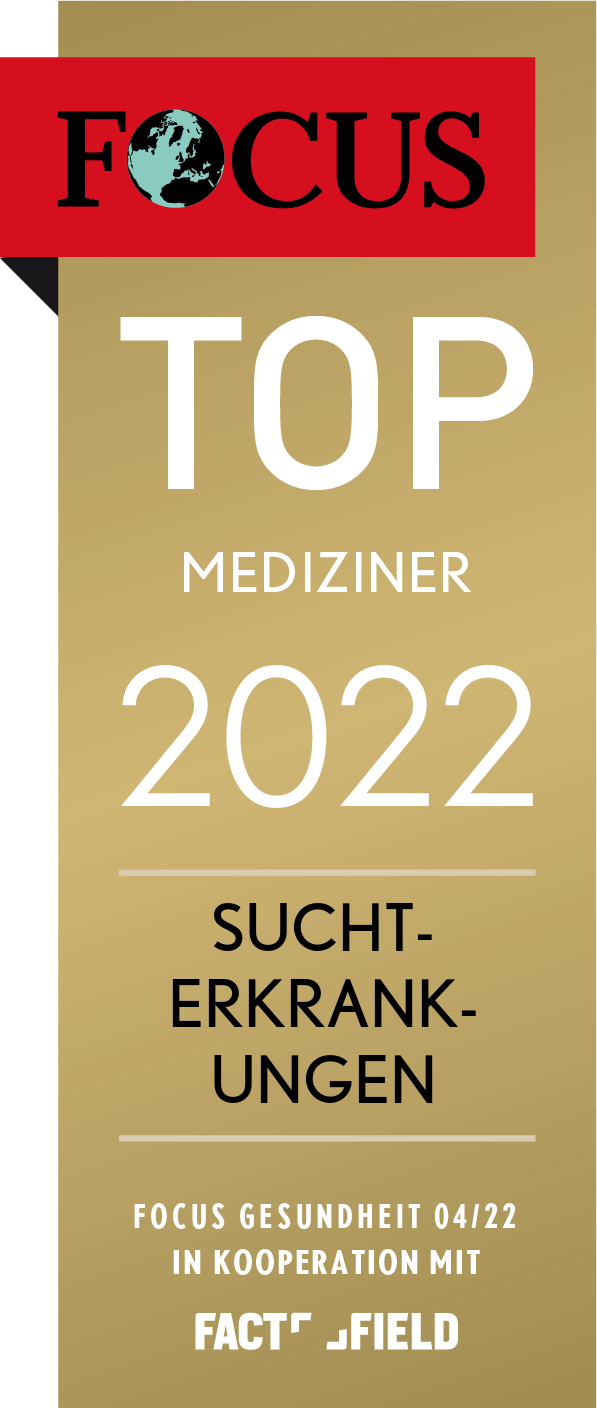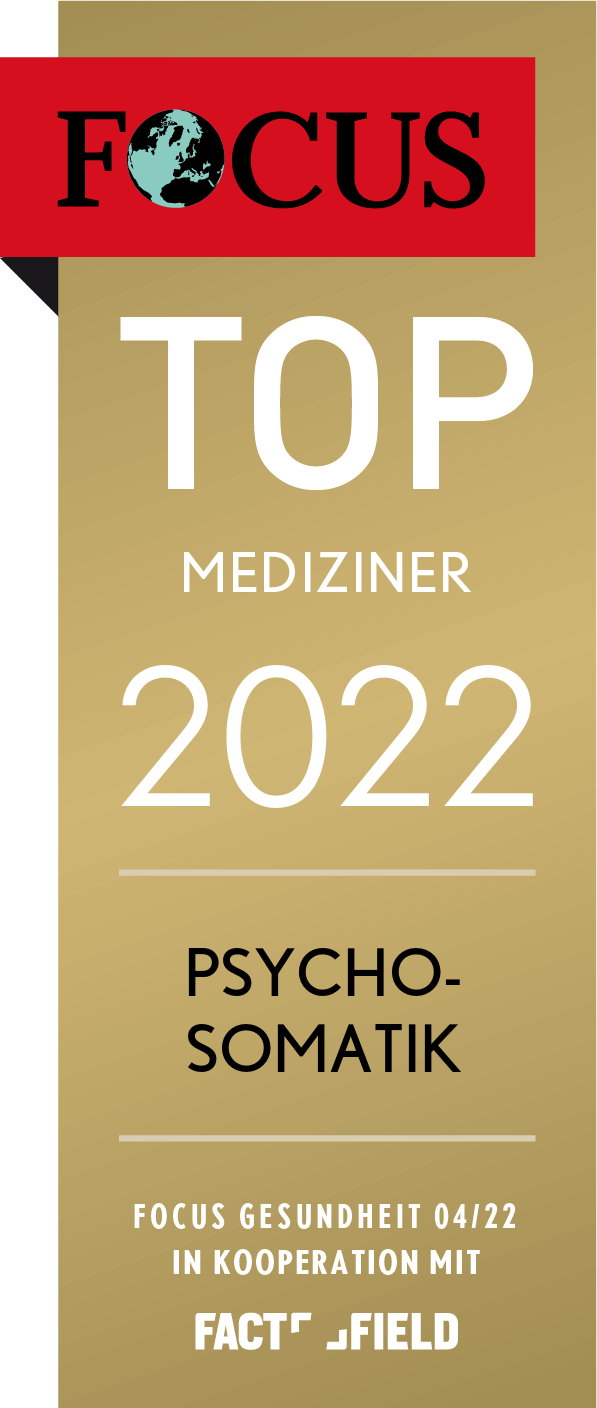In der Praxis Dr. Tamme werden Neuromodulationsverfahren wie rTMS (repetitive transkranielle Magnetstimulation) nur dann durchgeführt, wenn wissenschaftliche Wirksamkeitsbelege für die Indikation und die Durchführungsweise vorliegen.
Wissenschaftliche Publikationen
Übersichtsarbeiten [1-3] , Depression [1,2,4-20] , Schmerz [21-37] , Wirkungsweise [24,27,38,39] , Zwangserkrankungen [40-45] , Posttraumatische Belastungsstörung [1,2,46-48] , Depersonalisation [49-51] , Sicherheit [52-62]
Übersichtsarbeiten [1-3]
- Aleman, A. Use of Repetitive Transcranial Magnetic Stimulation for Treatment in Psychiatry. Clin Psychopharmacol Neurosci11, 53-59, doi:10.9758/cpn.2013.11.2.53 (2013).
- Health, O. O. C. A. f. D. a. T. i. Transcranial Magnetic Stimulation for the Treatment of Adults with PTSD, GAD, or Depression – A Review of Clinical Effectiveness and Guideline. (2014).
- Schlaepfer, T. E., George, M. S. & Mayberg, H. WFSBP Guidelines on Brain Stimulation Treatments in Psychiatry. World J. Biol. Psychiatry11, 2-18, doi:10.3109/15622970903170835 (2010).
Depression [1,2,4-20]
- Aleman, A. Use of Repetitive Transcranial Magnetic Stimulation for Treatment in Psychiatry. Clin Psychopharmacol Neurosci11, 53-59, doi:10.9758/cpn.2013.11.2.53 (2013)
- Health, O. O. C. A. f. D. a. T. i. Transcranial Magnetic Stimulation for the Treatment of Adults with PTSD, GAD, or Depression – A Review of Clinical Effectiveness and Guideline. (2014).
- Ahdab, R., Ayache, S. S., Brugieres, P., Goujon, C. & Lefaucheur, J. P. Comparison of „standard“ and „navigated“ procedures of TMS coil positioning over motor, premotor and prefrontal targets in patients with chronic pain and depression. Neurophysiol. Clin.40, 27-36, doi:10.1016/j.neucli.2010.01.001 (2010)
- Awiszus, F. Commentary on Fitzgerald and Daskalakis: a practical guide to the use of repetitive transcranial magnetic stimulation in the treatment of depression. Brain stimulation6, 456-457, doi:10.1016/j.brs.2012.05.004 (2013)
- Berlim, M. T., Van den Eynde, F. & Daskalakis, Z. J. A systematic review and meta-analysis on the efficacy and acceptability of bilateral repetitive transcranial magnetic stimulation (rTMS) for treating major depression. Psychol. Med.43, 2245-2254, doi:10.1017/s0033291712002802 (2013)
- Berlim, M. T., van den Eynde, F., Tovar-Perdomo, S. & Daskalakis, Z. J. Response, remission and drop-out rates following high-frequency repetitive transcranial magnetic stimulation (rTMS) for treating major depression: a systematic review and meta-analysis of randomized, double-blind and sham-controlled trials. Psychol. Med.44, 225-239, doi:10.1017/s0033291713000512 (2014)
- Best, S. R., Walden, K., Kendall, A. D. & Griffin, B. Combination therapy utilizing ketamine and transcranial magnetic stimulation for treatment resistant depression: A case report. Int. J. Neurosci., 1-8, doi:10.3109/00207454.2014.933834 (2014)
- Carpenter, L. L., Janicak, P.G. et al. Transcranial magnetic stimulation (TMS) for major depression – a multisite, naturalistic, observational study of acute treatment outcomes in clinical practice. Depress. Anxiety29, 587-596 (2012)
- Downar, J. & Daskalakis, Z. J. New targets for rTMS in depression: a review of convergent evidence. Brain stimulation6, 231-240, doi:10.1016/j.brs.2012.08.006 (2013)
- Fitzgerald, P. B. & Daskalakis, Z. J. A practical guide to the use of repetitive transcranial magnetic stimulation in the treatment of depression. Brain stimulation5, 287-296, doi:10.1016/j.brs.2011.03.006 (2012)
- Gaynes, B. N. rTMS for Treatment-Resistant Depression_A Systematic Review and Meta-Analysis. J. Clin. Psychiatry75, 477-491 (2014)
- Holzer, M. & Padberg, F. Intermittent theta burst stimulation (iTBS) ameliorates therapy-resistant depression: a case series. Brain stimulation3, 181-183, doi:10.1016/j.brs.2009.10.004 (2010)
- Jhanwar, V. G., Bishnoi, R. J., Singh, L. & Jhanwar, M. Utility of repetitive transcranial magnetic stimulation as an augmenting treatment method in treatment-resistant depression. Indian J. Psychiatry53, 145 (2011)
- Nadeau, S. E., Bowers, D et al. Cognitive Effects of treatment of depression with rTMS. Cogn. Behav. Neurol.27, 77-87 (2014)
- Plewnia, C. & Padberg, F. [Transcranial and invasive brain stimulation for depression]. Nervenarzt83, 1006-1012, doi:10.1007/s00115-012-3573-y (2012)
- Rybak, M., Bruno, R., Turnier-Shea, Y. An Attempt to Increase the Rate and Magnitude of the Antidepressant Effect of Transcranial Magnetic Stimulation (TMS).pdf. German J Psychiatry59- ff. (2005)
- Simpson, K. N., Welch, M. J., Kozel, F. A., Demitrack, M. A. & Nahas, Z. Cost-effectiveness of transcranial magnetic stimulation in the treatment of major depression: a health economics analysis. Adv. Ther.26, 346-368, doi:10.1007/s12325-009-0013-x (2009)
- Slotema, C. W., Blom, J. D., Hoek, H. W. & Sommer, I. E. Should we expand the toolbox of psychiatric treatment methods to include Repetitive Transcranial Magnetic Stimulation (rTMS)? A meta-analysis of the efficacy of rTMS in psychiatric disorders. J. Clin. Psychiatry71, 873-884, doi:10.4088/JCP.08m04872gre (2010)
- Zhang, Y. Q. et al. Bilateral repetitive transcranial magnetic stimulation for treatment-resistant depression: a systematic review and meta-analysis of randomized controlled trials. Braz. J. Med. Biol. Res.0, 0, doi:10.1590/1414-431×20144270 (2015)
Schmerz [21-37]
- Antal, A. & Paulus, W. Transkranielle repetitive Magnet- und Gleichstromstimulation in der Schmerztherapie. Schmerz (Berlin, Germany)24, 161-166, doi:10.1007/s00482-010-0899-x (2010)
Boyer, L., Dosset, A. rTMS in fibromyalgia.pdf. American Academy of Neurology (21014).
- Brighina, F. et al. Modulation of pain perception by transcranial magnetic stimulation of left prefrontal cortex. J. Headache Pain12, 185-191, doi:10.1007/s10194-011-0322-8 (2011)
- de Andrade, D. C., Mhalla, A., Adam, F., Texeira, M. J. & Bouhassira, D. Neuropharmacological basis of rTMS-induced analgesia: the role of endogenous opioids. Pain152, 320-326, doi:10.1016/j.pain.2010.10.032 (2011)
- Knijnik, L. M. et al. Repetitive Transcranial Magnetic Stimulation for Fibromyalgia: Systematic Review and Meta-Analysis. Pain practice : the official journal of World Institute of Pain, doi:10.1111/papr.12276 (2015)
- Leung, A. et al. rTMS for suppressing neuropathic pain: a meta-analysis. J. Pain10, 1205-1216, doi:10.1016/j.jpain.2009.03.010 (2009)
- Maarrawi, J. et al. Motor cortex stimulation for pain control induces changes in the endogenous opioid system. Neurology69, 827-834, doi:10.1212/01.wnl.0000269783.86997.37 (2007)
- Mhalla, A. et al. Long-term maintenance of the analgesic effects of transcranial magnetic stimulation in fibromyalgia. Pain152, 1478-1485, doi:10.1016/j.pain.2011.01.034 (2011)
- Nizard J, L. J.-P., Helbert M. Non-invasive stimulation therapies for the treatment of refractory pain. Discov. Med.14, 21-31 (2012)
- O’Connell NE, W. B., Marston L, Spencer S, DeSouza LH. Non-invasive brain stimulation techniques for chronic pain (review). The Cochrane Collaboration (2011)
- Papuc, E. R., K. The role of neurostimulation in the treatment of neuropathic pain. Ann. Agric. Environ. Med., 14-17 (2013)
- Passard, A. et al. Effects of unilateral repetitive transcranial magnetic stimulation of the motor cortex on chronic widespread pain in fibromyalgia. Brain130, 2661-2670, doi:10.1093/brain/awm189 (2007)
- Perocheau, D., Laroche, F. & Perrot, S. Relieving pain in rheumatology patients: repetitive transcranial magnetic stimulation (rTMS), a developing approach. Joint Bone Spine81, 22-26, doi:10.1016/j.jbspin.2013.04.015 (2014)
- Plow, E. B., Pascual-Leone, A. & Machado, A. Brain stimulation in the treatment of chronic neuropathic and non-cancerous pain. J. Pain13, 411-424, doi:10.1016/j.jpain.2012.02.001 (2012)
- Rokyta, R. Neurostimulation in the treatment of chronic pain. Physiol. Res.61 (Suppl 2), 23-31 (2012)
- Short, E. B. et al. Ten sessions of adjunctive left prefrontal rTMS significantly reduces fibromyalgia pain: a randomized, controlled pilot study. Pain152, 2477-2484, doi:10.1016/j.pain.2011.05.033 (2011)
- Taylor, J. J., Borckardt, J. J. & George, M. S. Endogenous opioids mediate left dorsolateral prefrontal cortex rTMS-induced analgesia. Pain153, 1219-1225, doi:10.1016/j.pain.2012.02.030 (2012)
- Taylor, J. J., Borckardt, J. J. & George, M. S. Endogenous opioids mediate left dorsolateral prefrontal cortex rTMS-induced analgesia. Pain153, 1219-1225, doi:10.1016/j.pain.2012.02.030 (2012).
Wirkungsweise [24,27,38,39]
- de Andrade, D. C., Mhalla, A., Adam, F., Texeira, M. J. & Bouhassira, D. Neuropharmacological basis of rTMS-induced analgesia: the role of endogenous opioids. Pain152, 320-326, doi:10.1016/j.pain.2010.10.032 (2011)
- Maarrawi, J. et al. Motor cortex stimulation for pain control induces changes in the endogenous opioid system. Neurology69, 827-834, doi:10.1212/01.wnl.0000269783.86997.37 (2007)
- DosSantos, M. F. et al. Immediate effects of tDCS on the mu-opioid system of a chronic pain patient. Frontiers in psychiatry3, 93, doi:10.3389/fpsyt.2012.00093 (2012)
- Medeiros, L. F. et al. Neurobiological effects of transcranial direct current stimulation: a review. Frontiers in psychiatry3, 110, doi:10.3389/fpsyt.2012.00110 (2012)
Zwangserkrankungen [40-45]
- Berlim, M. T., Neufeld, N. H. & Van den Eynde, F. Repetitive transcranial magnetic stimulation (rTMS) for obsessive-compulsive disorder (OCD): an exploratory meta-analysis of randomized and sham-controlled trials. J. Psychiatr. Res.47, 999-1006, doi:10.1016/j.jpsychires.2013.03.022 (2013)
- Gomes, P. V., Brasil-Neto, J. A randomized, double-blind trial of rTMS in OCD with 3 month follow-up. The Journal of Neuropsychiatry and Clinical Neurosciences24, 437-443 (2012)
- Ma, X., Huang, Y., Liao, L. & Jin, Y. A randomized double-blinded sham-controlled trial of alpha electroencephalogram-guided transcranial magnetic stimulation for obsessive-compulsive disorder. Chin. Med. J. (Engl.)127, 601-606 (2014)
- Pallanti, S. & Hollander, E. Pharmacological, experimental therapeutic, and transcranial magnetic stimulation treatments for compulsivity and impulsivity. CNS Spectr19, 50-61, doi:10.1017/s1092852913000618 (2014)
- Saba, G., Moukheiber, A. & Pelissolo, A. Transcranial cortical stimulation in the treatment of obsessive-compulsive disorders: efficacy studies. Current psychiatry reports17, 571, doi:10.1007/s11920-015-0571-3 (2015)
- Xiaoyan, M. A randomized double-blinded sham-controlled trial of a electroencephalogram-guided rTMS for OCD. Chin. Med. J.127, 601-606, doi:10.3760/cma.j.issn.0366-6999.20131994 (2014)
Posttraumatische Belastungsstörung [1,2,46-48]
- Aleman, A. Use of Repetitive Transcranial Magnetic Stimulation for Treatment in Psychiatry. Clin Psychopharmacol Neurosci11, 53-59, doi:10.9758/cpn.2013.11.2.53 (2013)
- Health, O. O. C. A. f. D. a. T. i. Transcranial Magnetic Stimulation for the Treatment of Adults with PTSD, GAD, or Depression – A Review of Clinical Effectiveness and Guideline. (2014)
- Berlim, M. T. & Van Den Eynde, F. Repetitive transcranial magnetic stimulation over the dorsolateral prefrontal cortex for treating posttraumatic stress disorder: an exploratory meta-analysis of randomized, double-blind and sham-controlled trials. Can. J. Psychiatry.59, 487-496 (2014)
- Nam, D. H., Pae, C. U. & Chae, J. H. Low-frequency, Repetitive Transcranial Magnetic Stimulation for the Treatment of Patients with Posttraumatic Stress Disorder: a Double-blind, Sham-controlled Study. Clin Psychopharmacol Neurosci11, 96-102, doi:10.9758/cpn.2013.11.2.96 (2013)
- Oznur, T. et al. Is transcranial magnetic stimulation effective in treatment-resistant combat related posttraumatic stress disorder? Neurosciences (Riyadh)19, 29-32 (2014)
Depersonalisation [49-51]
- Christopeit, M. et al. Effects of repetitive transcranial magnetic stimulation (rTMS) on specific symptom clusters in depersonalization disorder (DPD). Brain stimulation7, 141-143, doi:10.1016/j.brs.2013.07.006 (2014)
- Geerts, P. J., Lemmens, G. M. & Baeken, C. The Occurrence of Depersonalization Symptoms After Accelerated HF-rTMS of the Left DLPFC in a Patient With Treatment-resistant Depression: A Case Report. Brain stimulation, doi:10.1016/j.brs.2015.02.010 (2015)
- Mantovani, A. et al. Temporo-parietal junction stimulation in the treatment of depersonalization disorder. Psychiatry Res.186, 138-140, doi:10.1016/j.psychres.2010.08.022 (2011)
Sicherheit[52-62]
- Anderson, B. et al. Tolerability and safety of high daily doses of repetitive transcranial magnetic stimulation in healthy young men. J. ECT22, 49-53 (2006)
- Grossheinrich, N. et al. Theta burst stimulation of the prefrontal cortex: safety and impact on cognition, mood, and resting electroencephalogram. Biol. Psychiatry65, 778-784, doi:10.1016/j.biopsych.2008.10.029 (2009).
- Janicak, P. G., o’Reardon, J., Samson, S. Transcranial-Magnetic-Stimulation-in-the-Treatment-of-Major-Depressive-Disorder. J. Clin. Psychiatry69 („), 222 (2008)
- Kozel, F. A., Croarkin, P. E. & Mapes, K. S. A non-epileptiform event in the course of rTMS: a case for close physician monitoring. Brain stimulation6, 970-972, doi:10.1016/j.brs.2013.04.003 (2013)
- Lefaucheur, J. P. et al. Evidence-based guidelines on the therapeutic use of repetitive transcranial magnetic stimulation (rTMS). Clin. Neurophysiol., doi:10.1016/j.clinph.2014.05.021 (2014)
- Loo, C. K., McFarquhar, T. F. & Mitchell, P. B. A review of the safety of repetitive transcranial magnetic stimulation as a clinical treatment for depression. Int. J. Neuropsychopharmacol.11, 131-147, doi:10.1017/s1461145707007717 (2008)
- Oberman, L., Edwards, D., Eldaief, M. & Pascual-Leone, A. Safety of theta burst transcranial magnetic stimulation: a systematic review of the literature. J. Clin. Neurophysiol.28, 67-74, doi:10.1097/WNP.0b013e318205135f (2011)
- Rosa, M. A., Odebrecht, M., Rigonatti, S. P. & Marcolin, M. A. [Transcranial magnetic stimulation: review of accidental seizures]. Rev Bras Psiquiatr26, 131-134, doi:/S1516-44462004000200011 (2004)
- Rossi, S., Hallett, M., Rossini, P. M. & Pascual-Leone, A. Safety, ethical considerations, and application guidelines for the use of transcranial magnetic stimulation in clinical practice and research. Clin. Neurophysiol.120, 2008-2039, doi:10.1016/j.clinph.2009.08.016 (2009)
- Schlaepfer, T. E., George, M. S., Mayberg, H. & Stimulation, W. T. F. o. B. WFSBP Guidelines on Brain Stimulation Treatments in Psychiatry. World J. Biol. Psychiatry11, 2-18, doi:10.3109/15622970903170835 (2010)
- Wassermann, E. M. Risk and safety of repetitive transcranial magnetic stimulation: report and suggested guidelines from the International Workshop on the Safety of Repetitive Transcranial Magnetic Stimulation, June 5-7, 1996. Electroencephalogr. Clin. Neurophysiol.108, 1-16 (1998)

